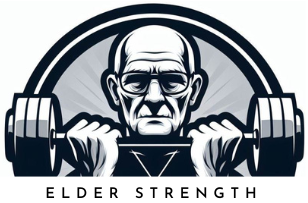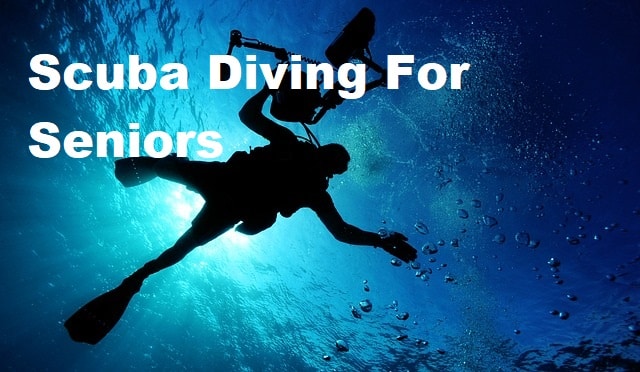Welcome friend! If you are a senior looking for information about scuba diving for seniors, you’ve come to the right place! In this article, you will learn if scuba diving would be a suitable sport for you and what considerations seniors need to take while driving.
Exploring the underwater world can be one of the most thrilling experiences you can have. Be it in the ocean or crystal clear lakes, the world beneath the surface seems both alien and magical at the same time. It really offers an escape from your daily life if you want to.
It’s no wonder people have always been fascinated with the underwater. Fortunately, we are living in a time where technology makes it possible to explore the underwater world safely for extended periods of time.
That said since humans are more amphibians, going below always involves a certain level of risk. That’s why scuba diving requires education and safety procedures as well as good physical health.
So the question becomes, is scuba diving suitable for seniors? Read on to find out.
What Is Scubadiving
Scuba diving is diving using scuba gear which essentially means using an external source of air for breathing. This source is a bottle or bottles of compressed air that you typically carry on your back.
This makes scuba diving very different from freediving since the bottle is cumbersome and you will need to learn to move with it. Compared to freediving you will also need to breathe through a regulator which feels a bit different than breathing regularly.
While scuba diving is more cumbersome than free diving the benefits are clear. You can stay underwater for extended periods of time without the risk of running out of oxygen. This allows exploration and also makes it possible to stay longer in greater depths.
Scubadiving naturally makes many kinds of non-recreational underwater activities possible. Construction, research, filming, etc.
Scuba Gear
Scubadiving typically uses more equipment than just the air bottle and regulator which we talked about already.
Because water is typically significantly colder than our body temperature, especially when you go a bit deeper, scuba divers usually wear a wetsuit that helps to keep you warm. It allows your body heat to warm a thin layer of water close to your body, working as insulation against the water.
In colder conditions, divers can also wear gloves and if it´s dangerously cold, there are special insulated diving suits but these are typically not meant for hobbyists and are only used by professionals and enthusiasts working in cold water.
The other important equipment are a diving mask and diving fins. The diving mask keeps your vision clear and protects your eyes and nose from water. Fins are needed with an air tank to make swimming easier as regular swimming is cumbersome with the added weight.
If you have never tried scuba diving it might come as a surprise how different movement underwater with scuba gear is compared to freediving.
You control your depth with adjustable air bladders or tanks instead of swimming and the equipment pretty much constricts your movement to the horizontal plane. It takes some time to use to and it isn’t as intuitive as free diving, especially if you are an experienced swimmer.
You also need to keep an eye on your oxygen levels and equalize the pressure in your ears when changing depth. All this makes scuba diving very different from swimming.
While good swimming ability will make scuba diving easier, you will still start as a beginner in scuba diving and need to learn a completely new skill. That said, with proper training and equipment scuba diving is not that hard to learn for fit and active people.
Scuba diving considerations for seniors
There are several safety and health considerations in equipment diving that are especially important for seniors.
The first requirement is the ability to swim. If you can’t swim effectively, you can’t dive effectively. Even though diving with scuba gear is very different from regular swimming, it’s still based on the same principles.
If your equipment fails or you run out of air and for any reason there is no imminent safety like a boat or a shore, your ability to swim is your only lifeline.
Another important thing is physical fitness and health. Diving is physically demanding and your body will be exposed to physical stress from the water pressure, temperature, and physical exertion.
If you have high blood pressure, any kind of heart condition, or just poor physical fitness, diving is probably not suitable for you, or at least you need to be evaluated by a qualified medical professional. A complete medical check-up is always in order before trying scuba diving for the first time.
You need to be able to maintain calmness in case of emergencies, so good mental health is also a requirement.
One thing you need be able to do is to regulate your middle ear pressure. As you dive, the water pressure will cause pressure differences in your middle ear, which can be painful and can also lead to an eardrum rupture.
You control this by pushing air into your middle ears. There are techniques but some people can’t do this, especially if they have chronic conditions affecting the middle ear airway.
All that said, if you are physically fit and in good general health, age doesn’t prevent you from scuba diving. But you will need to get a full physical check-up and be educated on equipment diving. Which takes us to our next topic.
How To Get Started
You’ve probably understood by now that scuba diving is something you should never learn on your own. There are several health considerations as well as several safety considerations which can both lead to injury or death if not taken into consideration.
Scubadiving should always be learned on a diving certification course that’s organized by an established diving organization. There are at least two major diving organizations that offer courses from beginners to pros: PADI and SSI.
Here’s a great introduction video (embedded link, all rights belong to the YouTube channels owner) from PADI’s YouTube channel:
It’s possible to try scuba diving without any prior experience in many exotic tourist beaches but this is something you should never do. Responsible diving expedition companies require you to have a diving certification and depending on your experience they can also require you to have a guide with you.
Safety is the most important considerations in diving. So learn it with qualified people and only use quality equipment. Don’t skimp on cost. Keeping all this in mind you will have an enjoyable and safe experience.
Conclusion
I hope you found this article about scuba diving for seniors useful! If you have any questions, you can contact me by leaving a comment below and I’ll do my best to answer your questions for you.
Scuba diving can be an exciting and fun activity that is also great for physical health. It’s also suitable for seniors that are in good general health and capable of swimming. Just make sure to get a medical check-up and educate yourself by attending a diving certification course that’s organized by an established diving organization.
Thanks for reading and see you next time!

